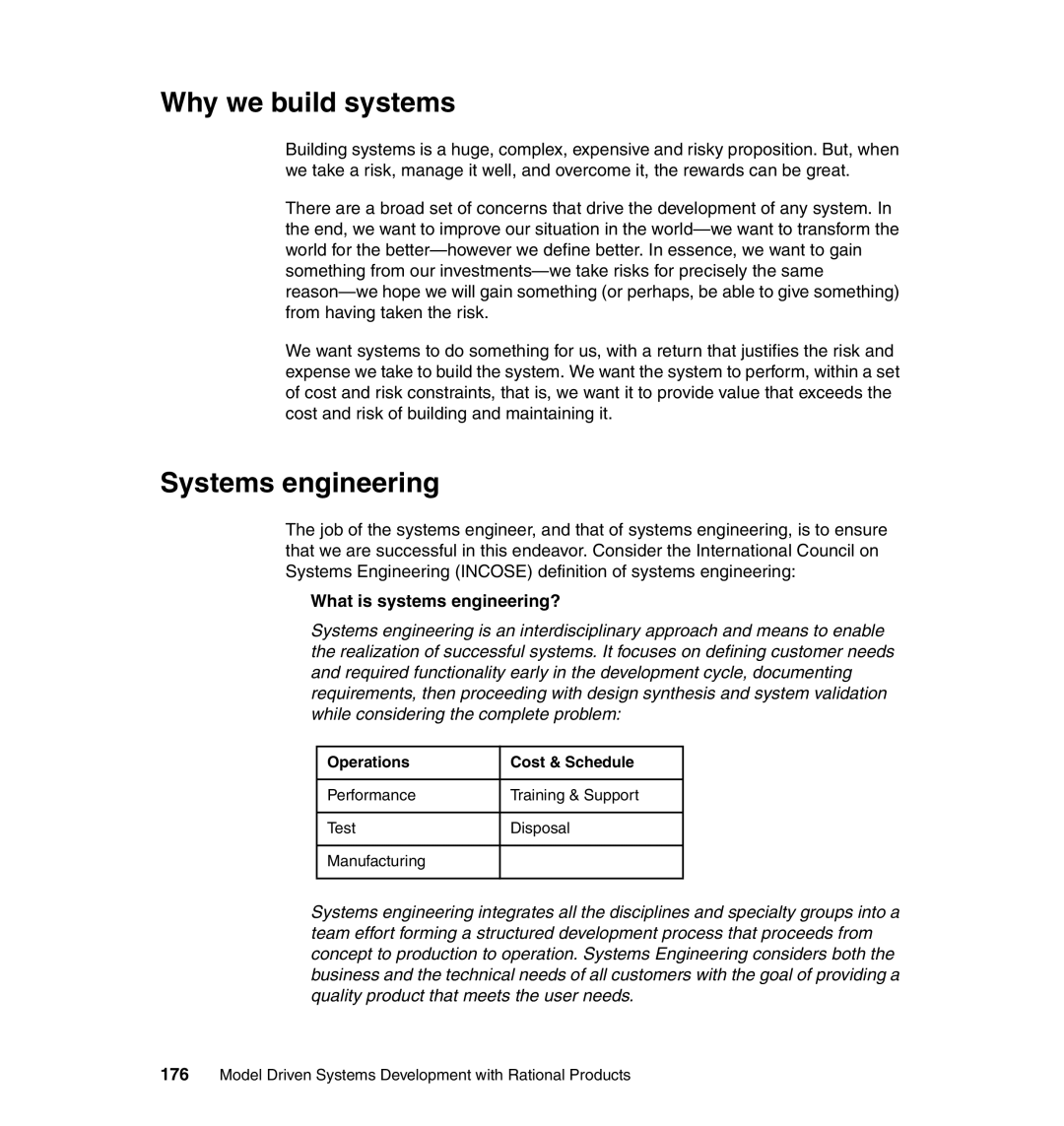Why we build systems
Building systems is a huge, complex, expensive and risky proposition. But, when we take a risk, manage it well, and overcome it, the rewards can be great.
There are a broad set of concerns that drive the development of any system. In the end, we want to improve our situation in the
We want systems to do something for us, with a return that justifies the risk and expense we take to build the system. We want the system to perform, within a set of cost and risk constraints, that is, we want it to provide value that exceeds the cost and risk of building and maintaining it.
Systems engineering
The job of the systems engineer, and that of systems engineering, is to ensure that we are successful in this endeavor. Consider the International Council on Systems Engineering (INCOSE) definition of systems engineering:
What is systems engineering?
Systems engineering is an interdisciplinary approach and means to enable the realization of successful systems. It focuses on defining customer needs and required functionality early in the development cycle, documenting requirements, then proceeding with design synthesis and system validation while considering the complete problem:
Operations | Cost & Schedule |
|
|
Performance | Training & Support |
|
|
Test | Disposal |
|
|
Manufacturing |
|
|
|
Systems engineering integrates all the disciplines and specialty groups into a team effort forming a structured development process that proceeds from concept to production to operation. Systems Engineering considers both the business and the technical needs of all customers with the goal of providing a quality product that meets the user needs.
